Interesting or Unusual Behaviour
- Mel
- Global Moderator
- Posts: 27436
- Joined: Sat May 19, 2012 12:31 pm
- Country: Germany
- Location: Föhr
- Contact:
Re: Interesting or Unusual Behaviour
Beautiful article with a funny twist  Thanks, Klippspringer
Thanks, Klippspringer 
God put me on earth to accomplish a certain amount of things. Right now I'm so far behind that I'll never die.
- Lisbeth
- Site Admin
- Posts: 67182
- Joined: Sat May 19, 2012 12:31 pm
- Country: Switzerland
- Location: Lugano
- Contact:
Escape and evade strategies in the avian world
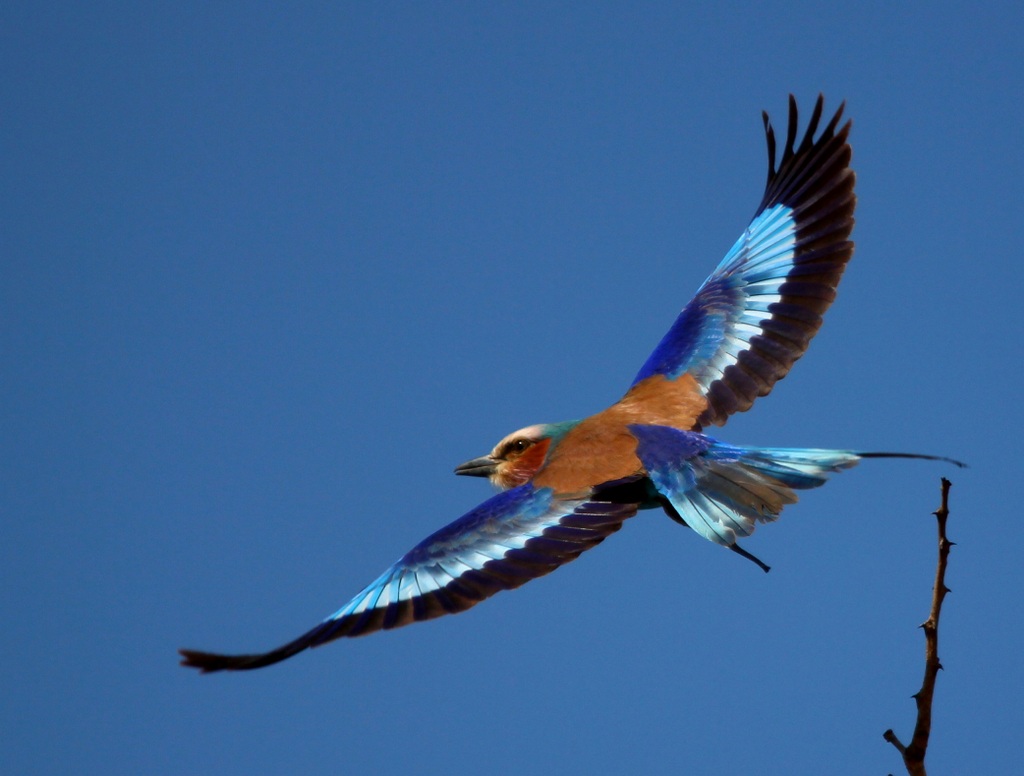
© Robbie Mann
SPONSORED CONTENT by Edward Smith – Bushwise
The unique adaptation of wings and the incredible feature of feathers that evolved from reptilian scales is what first allowed our avian friends to escape predation on land, by flying into the sky. Since then, these incredible creatures have evolved to such an extent that, for some species, not only do they need to escape threats from land, but also in the sky where larger predatory birds roam.
It is a continuous and ongoing battle between the predators that must eat and the prey that must avoid being eaten, and this is where escape and evade strategies come in. Every bird species has adapted to have at least one way of defending itself – even those right at the very top of the food chain may fall prey to many mammals, reptiles and even insects.
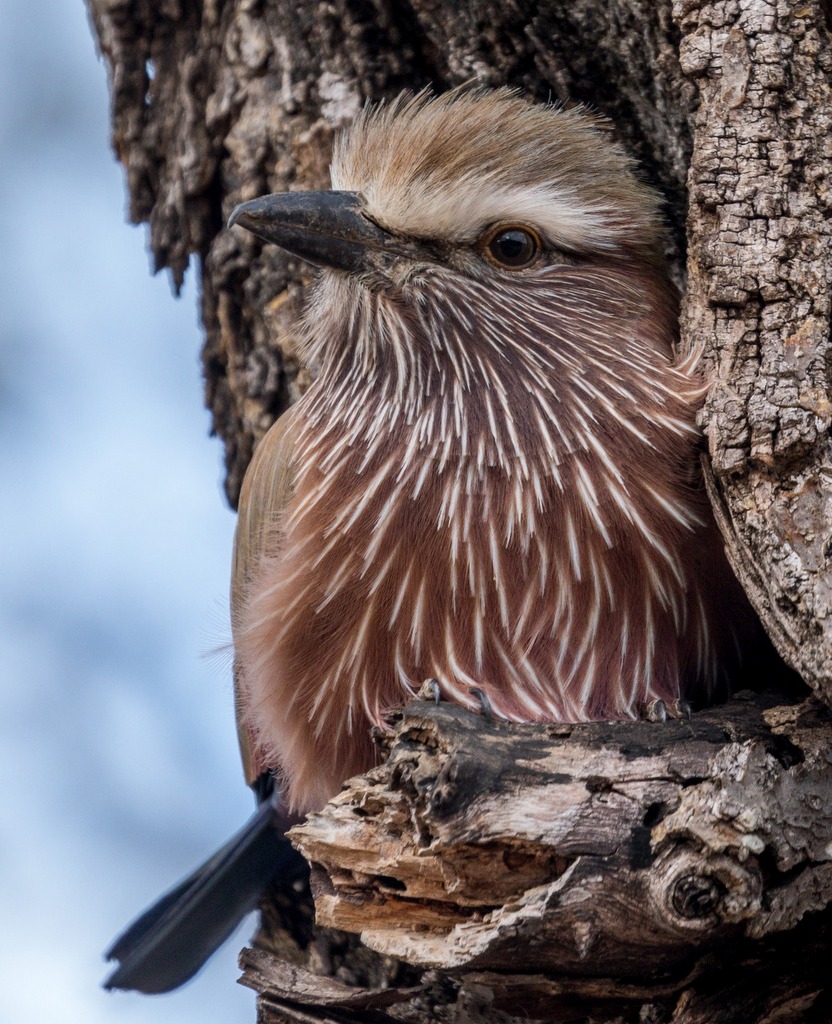
© Vaughan Jessnitz
Incredibly, 99.4% of all birds have mastered flight and have therefore not only chosen to return to land when threatened in the sky (by other birds only), but have made use of different strategies to ensure, or at least increase, their chances of survival while flying.
Whether it be flying in a large flock as the same species or as a larger group consisting of many different species, flocking is the safest as it has allowed birds to have strength in numbers, have more eyes and ears watching for danger and have a greater intimidation effect on enemies. Sticking together has enabled flocks to effectively mob enemies (dive-bombing onto the head or body of enemies); create the dilution effect (the more individuals, the lower the individual risk); and the confusion effect (too many to choose from, allowing almost all to escape).
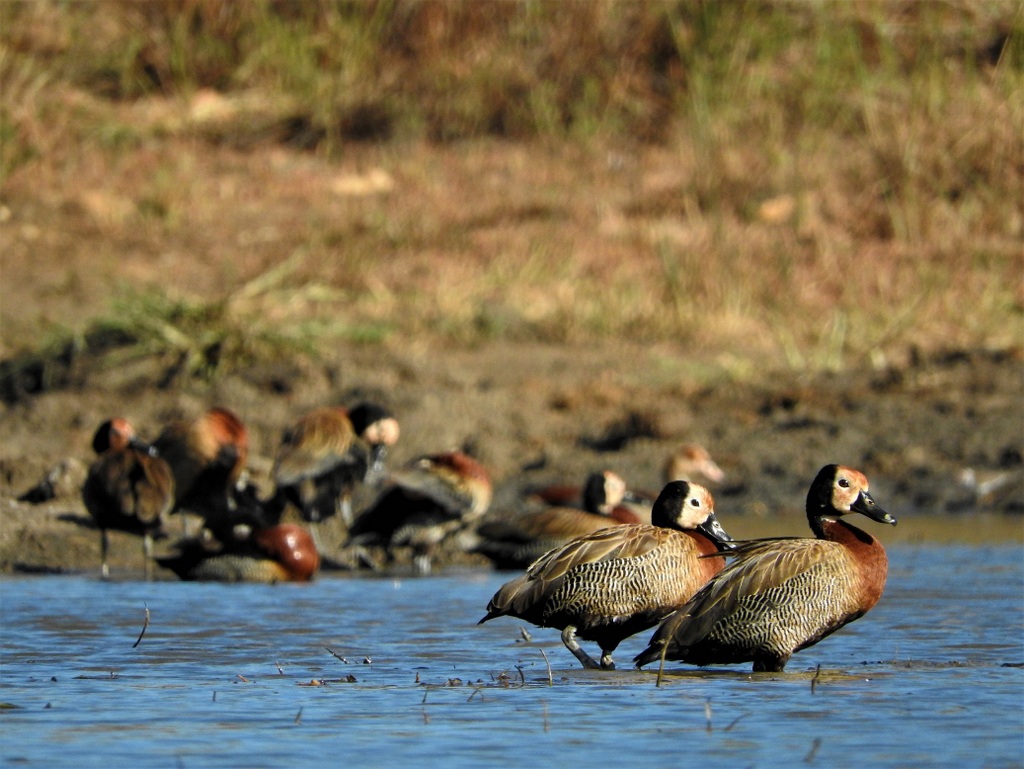
© Robbie Mann
Birds restricted to only land or water share their various escape and evade techniques with their various flying cousins.
Those adapted for life on land have adapted to run incredible speeds that can reach up to 70 km/h and can also deliver killing powerful kicks, disembowelling a predator the size of a human. One such example is the ostrich.
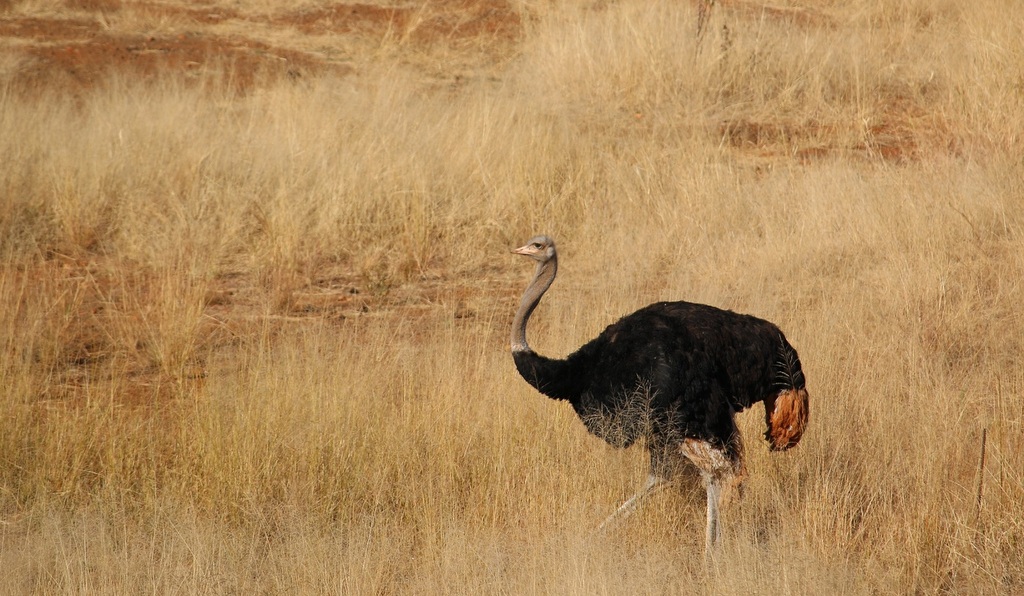
© Georgina Stewart
Many are restricted to nests, either at birth, during incubation or moulting, and would make use of incredible camouflage while keeping dead still and low to the ground or nest, preventing any predators from spotting them.
In certain species where cryptic colouration has not been so well developed, parents would make use of a broken wing display to draw enemies away from the nest before taking to the sky. Others make use of aposematic colouration (danger/warning colouration: bright red, yellow, orange, black and white) to ward off any predators. Some, such as fulmar and albatross chicks, are able to either projectile-vomit a noxious fluid or regurgitate foul-smelling, oil-rich stomach contents to escape predation.
When many are confronted to a point of no hope, such as Verreaux’s eagle-owl chicks at times, they would play dead, hoping that the threat would go away.
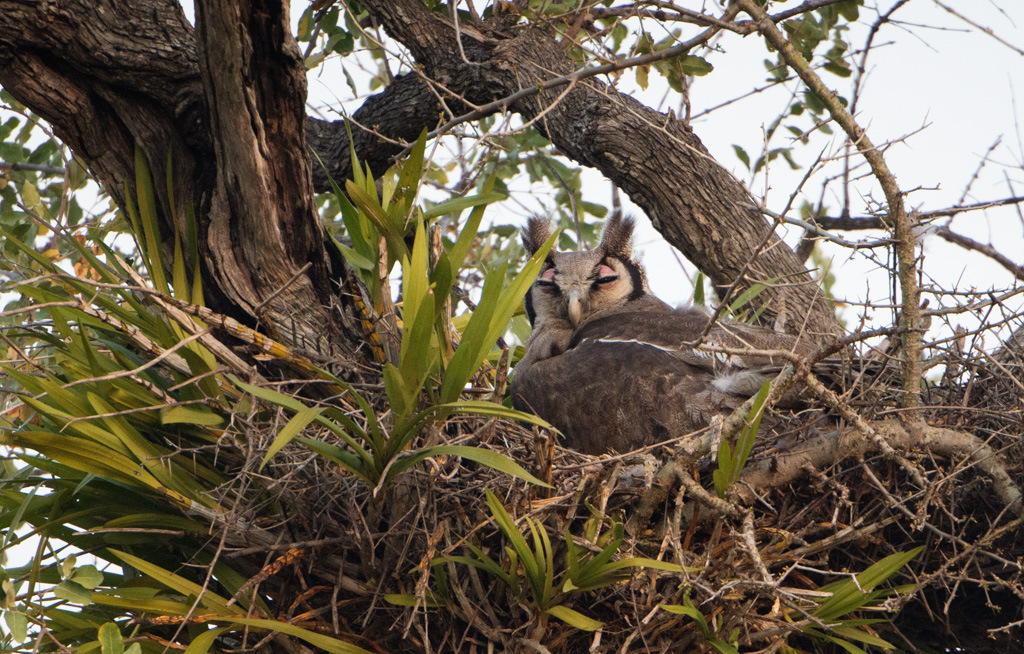
© Werner Swanepoel
Birds are one of the most diverse groups of vertebrates being only second to fish on the entire planet. Covering almost every corner of the globe we are still learning about their behaviour today. Of the various escape and evade strategies that were mentioned, we can be sure that they do indeed work as those specific individuals who have used it successfully have bred and are still ensured their propagation today.
Happy bird watching!
https://africageographic.com/blog/escap ... 3cf4ca8e69
"Education is the most powerful weapon which you can use to change the world." Nelson Mandela
The desire for equality must never exceed the demands of knowledge
The desire for equality must never exceed the demands of knowledge
- Flutterby
- Posts: 43945
- Joined: Sat May 19, 2012 12:28 pm
- Country: South Africa
- Location: Gauteng, South Africa
- Contact:
Re: Interesting or Unusual Behaviour
Thought this was really interesting and funny! 
Karen EichholzBirdLife South Africa
46 mins ·
So this is what the Cape Weaver thinks of my deterrent to stop him from building his nest on my stoep.
- Richprins
- Committee Member
- Posts: 76012
- Joined: Sat May 19, 2012 3:52 pm
- Location: NELSPRUIT
- Contact:
Re: Interesting or Unusual Behaviour
Please check Needs Attention pre-booking: https://africawild-forum.com/viewtopic.php?f=322&t=596
- Lisbeth
- Site Admin
- Posts: 67182
- Joined: Sat May 19, 2012 12:31 pm
- Country: Switzerland
- Location: Lugano
- Contact:
Re: Interesting or Unusual Behaviour
"Education is the most powerful weapon which you can use to change the world." Nelson Mandela
The desire for equality must never exceed the demands of knowledge
The desire for equality must never exceed the demands of knowledge
- Richprins
- Committee Member
- Posts: 76012
- Joined: Sat May 19, 2012 3:52 pm
- Location: NELSPRUIT
- Contact:
Re: Interesting or Unusual Behaviour
What bird is this??
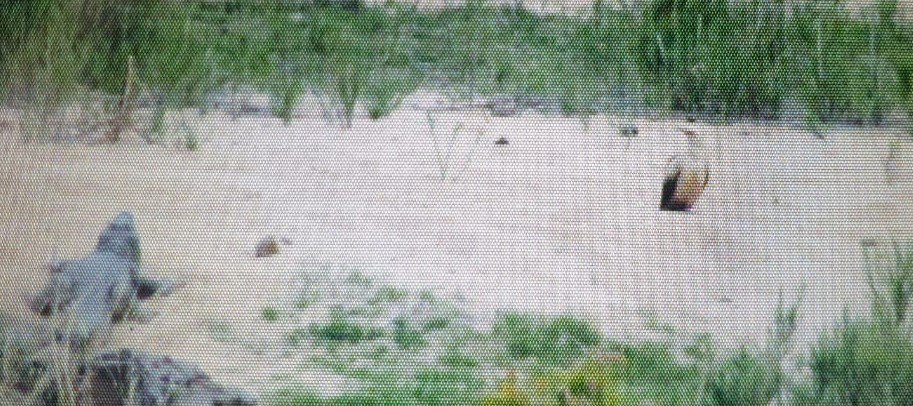
Kruger Sightings
Verified account @LatestKruger
24h24 hours ago
10:09 am
1 Vulture stationary
'stole crocodile eggs. The crocodile tried to chase it from the river bank'
Ngwenya Lodge, Elephant Crossing game viewing hide
Near Crocodile Bridge
5/5
Tinged by Nic and Marlene
(Photo)

Kruger Sightings
Verified account @LatestKruger
24h24 hours ago
10:09 am
1 Vulture stationary
'stole crocodile eggs. The crocodile tried to chase it from the river bank'
Ngwenya Lodge, Elephant Crossing game viewing hide
Near Crocodile Bridge
5/5
Tinged by Nic and Marlene
(Photo)
Please check Needs Attention pre-booking: https://africawild-forum.com/viewtopic.php?f=322&t=596
- Richprins
- Committee Member
- Posts: 76012
- Joined: Sat May 19, 2012 3:52 pm
- Location: NELSPRUIT
- Contact:
Re: Interesting or Unusual Behaviour
Palm nut Vulture??? 
It has also been recorded to feed on crabs (both freshwater and marine), molluscs, frogs, fish, locusts, small mammals, even reptiles’ eggs
https://en.wikipedia.org/wiki/Palm-nut_vulture
It has also been recorded to feed on crabs (both freshwater and marine), molluscs, frogs, fish, locusts, small mammals, even reptiles’ eggs
https://en.wikipedia.org/wiki/Palm-nut_vulture
Last edited by Richprins on Wed Nov 06, 2019 10:20 am, edited 2 times in total.
Please check Needs Attention pre-booking: https://africawild-forum.com/viewtopic.php?f=322&t=596
- Lisbeth
- Site Admin
- Posts: 67182
- Joined: Sat May 19, 2012 12:31 pm
- Country: Switzerland
- Location: Lugano
- Contact:
Re: Interesting or Unusual Behaviour
Yes, looks like it 
Not long ago there was a photo of a juvenile palm nut vulture from Kruger
Not long ago there was a photo of a juvenile palm nut vulture from Kruger
"Education is the most powerful weapon which you can use to change the world." Nelson Mandela
The desire for equality must never exceed the demands of knowledge
The desire for equality must never exceed the demands of knowledge
- Sprocky
- Posts: 7110
- Joined: Sat May 19, 2012 12:29 pm
- Country: South Africa
- Location: Grietjie Private Reserve
- Contact:
Re: Interesting or Unusual Behaviour
I tend to agree with you.Richprins wrote: ↑Wed Nov 06, 2019 10:12 am Palm nut Vulture???
palm-nut-vulture.jpg
It has also been recorded to feed on crabs (both freshwater and marine), molluscs, frogs, fish, locusts, small mammals, even reptiles’ eggs
https://en.wikipedia.org/wiki/Palm-nut_vulture
Sometimes it’s not until you don’t see what you want to see, that you truly open your eyes.
- Lisbeth
- Site Admin
- Posts: 67182
- Joined: Sat May 19, 2012 12:31 pm
- Country: Switzerland
- Location: Lugano
- Contact:
Re: Interesting or Unusual Behaviour
They normally live along the coast.
"Education is the most powerful weapon which you can use to change the world." Nelson Mandela
The desire for equality must never exceed the demands of knowledge
The desire for equality must never exceed the demands of knowledge



